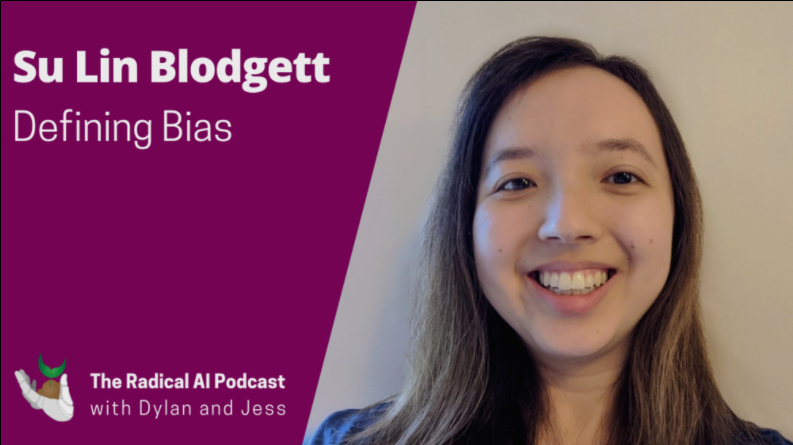
ΑΙhub.org
Radical AI podcast: featuring Su Lin Blodgett

Hosted by Dylan Doyle-Burke and Jessie J Smith, Radical AI is a podcast featuring the voices of the future in the field of artificial intelligence ethics. In this episode Jess and Dylan chat to Su Lin Blodgett about defining bias.
Defining bias with Su Lin Blodgett
How do we define bias? Is all bias the same? Is it possible to eliminate bias completely in our AI systems? Should we even try? To answer these questions and more we welcome to the show Su Lin Blodgett.
Su Lin is a postdoctoral researcher in the Fairness, Accountability, Transparency, and Ethics (FATE) group at Microsoft Research Montréal. She is broadly interested in examining the social implications of Natural Language Processing, or NLP technologies, and in using NLP approaches to examine language variation and change. She previously completed her Ph.D. in computer science at the University of Massachusetts Amherst.
Follow Su Lin Blodgett on Twitter @sulin_blodgett.
Full show notes for this episode can be found at Radical AI.
Listen to the episode below:
About Radical AI:
Hosted by Dylan Doyle-Burke, a PhD student at the University of Denver, and Jessie J Smith, a PhD student at the University of Colorado Boulder, Radical AI is a podcast featuring the voices of the future in the field of Artificial Intelligence Ethics.
Radical AI lifts up people, ideas, and stories that represent the cutting edge in AI, philosophy, and machine learning. In a world where platforms far too often feature the status quo and the usual suspects, Radical AI is a breath of fresh air whose mission is “To create an engaging, professional, educational and accessible platform centering marginalized or otherwise radical voices in industry and the academy for dialogue, collaboration, and debate to co-create the field of Artificial Intelligence Ethics.”
Through interviews with rising stars and experts in the field we boldly engage with the topics that are transforming our world like bias, discrimination, identity, accessibility, privacy, and issues of morality.
To find more information regarding the project, including podcast episode transcripts and show notes, please visit Radical AI.









